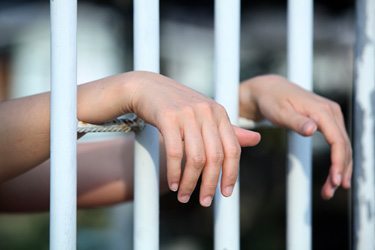Enforcement of Abortion Laws Violates Human Rights
Ipas’s recent research in Bolivia, Brazil, Peru, Malawi, and Rwanda provides concrete evidence of the human rights violations that result when law enforcement investigates, arrests, and imprisons women who have abortions.

Last year in Santa Cruz, Bolivia, a 28-year-old indigenous woman took drugs to end her pregnancy—one that had resulted from rape. She started hemorrhaging and went to the hospital. During the ten days that she received medical care, she was handcuffed to a bed and investigated for homicide. Her case was never tried, she was never sentenced, yet she went straight from the hospital to jail and was imprisoned for eight months.
Earlier this month, Ipas took her story and the stories of other women to the Committee on the Elimination of Discrimination Against Women (CEDAW) and the Human Rights Committee in Geneva. We showed how enforcement of criminal abortion laws in Bolivia, Brazil, Malawi, Peru, and Rwanda violates human rights under CEDAW (the international treaty that protects the rights of women). At the Human Rights Committee, we joined Bolivian civil society organizations in arguing that by enforcing abortion laws, Bolivia does not comply with the International Covenant on Civil and Political Rights.
We know well that criminalization of abortion violates women’s rights to health and life by making abortion inaccessible. Without access to information or safe services, women risk their health and lives trying to end pregnancies with sticks, herbal concoctions, and other methods.
Ipas’s recent research in five countries provides concrete evidence of the human rights violations that result when law enforcement investigates, arrests, and imprisons women who have abortions.
We found that governments violate the right to confidential health care when health records are exposed by the criminal justice system. In Brazil, in 2007, police raided a private clinic and confiscated the medical records of more than 9,600 female patients. The clinic raid was publicized in Brazil’s national media, and the names of the women were published on a government website. Peru requires health-care providers to report cases of abortion to the police.
The enforcement of abortion laws is rife with discrimination. In Bolivia, almost all the women reported to the police for illegal abortion are poor and indigenous. In Brazil, it is largely poor, Afro-descendent women with low levels of education who are punished. Women imprisoned for abortion in Malawi and Rwanda are mostly poor and from rural areas.
Our research shows that women in prison suffer cruel treatment because they are women. After miscarrying, a young woman in Malawi was imprisoned for 15 months of hard labor when her in-laws falsely reported her to the police for having an abortion. She was abused by prison officials, made to shave her genital area, take a cold shower, and “roll on the floor while naked.” Arbitrary imprisonment can also violate women’s rights to education and employment. In the case of this Malawian woman, her small business collapsed as a result of her arrest and imprisonment.
Besides outright criminalization, we found that barriers to legal abortion also violate human rights. In Bolivia and Rwanda, abortion is legal in certain cases. But laws in both countries require that women obtain authorization from a court before a legal abortion can be performed. Rwandan law also requires three doctors to authorize the procedure, although many women in the country lack access to even one doctor. In both countries, authorization procedures are inaccessible, and legal abortion is out of reach for most women, and certainly for poor women.
Through reviews of police, court, and prison records and through interviews with law enforcement officials, providers, women, and their families, Ipas is bringing to light the unsettling stories and the human rights violations that result from enforcement of criminal abortion laws. The consequences of criminalizing abortion are severe and reason for alarm.
As governments are complicit in the death and injury that results when women cannot access safe abortion, they are even more directly responsible for the loss of dignity and livelihood and the discrimination that occurs when authorities enforce restrictive abortion laws. Ipas will continue to provide grounds for the CEDAW, the Human Rights Committee, and others to recognize that governments violate human rights when they criminalize abortion.
